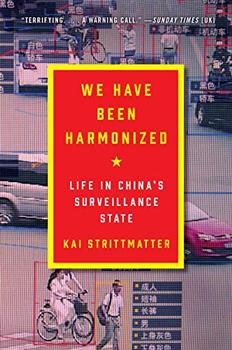Summary | Excerpt | Reviews | Beyond the book | Read-Alikes | Genres & Themes | Author Bio

A True Story of China, the FBI, and Industrial Espionage
by Mara HvistendahlA riveting true story of industrial espionage in which a Chinese-born scientist is pursued by the U.S. government for trying to steal trade secrets, by a finalist for the Pulitzer Prize in nonfiction.
In September 2011, sheriff's deputies in Iowa encountered three ethnic Chinese men near a field where a farmer was growing corn seed under contract with Monsanto. What began as a simple trespassing inquiry mushroomed into a two-year FBI operation in which investigators bugged the men's rental cars, used a warrant intended for foreign terrorists and spies, and flew surveillance planes over corn country—all in the name of protecting trade secrets of corporate giants Monsanto and DuPont Pioneer. In The Scientist and the Spy, Hvistendahl gives a gripping account of this unusually far-reaching investigation, which pitted a veteran FBI special agent against Florida resident Robert Mo, who after his academic career foundered took a questionable job with the Chinese agricultural company DBN—and became a pawn in a global rivalry.
Industrial espionage by Chinese companies lies beneath the United States' recent trade war with China, and it is one of the top counterintelligence targets of the FBI. But a decade of efforts to stem the problem have been largely ineffective. Through previously unreleased FBI files and her reporting from across the United States and China, Hvistendahl describes a long history of shoddy counterintelligence on China, much of it tinged with racism, and questions the role that corporate influence plays in trade secrets theft cases brought by the U.S. government. The Scientist and the Spy is both an important exploration of the issues at stake and a compelling, involving read.
Hvistendahl writes about the science of corn adeptly. The book never gets bogged down in technical babble. Her pacing is stellar, with short chapters quickly hopping between the three main characters. Her writing style—a mix of journalism and suspense—helps mitigate the more technical components of the story. However, the author's banal defense of China in this book rings hollow and unconvincing, which is a shame, because overall, The Scientist and the Spy is an extremely well-written, engaging story...continued
Full Review
 (1057 words)
(1057 words)
(Reviewed by BookBrowse Review Team).
Under President Bill Clinton, the United States agreed to allow the People's Republic of China into the World Trade Organization (WTO). The deal was finalized under President George W. Bush in December 2001. It was believed at the time that international trade would help depose one of the most authoritarian regimes in the world like perestroika did with the Soviets. American corporations were salivating with glee over the (at the time) 1.2 billion potential customers they might sell goods to, as well as the cheap labor pool China would bring to the global market.
It was an educated, if optimistic, geopolitical gambit by the U.S., and it did not play out as hoped. Today the Chinese Communist Party oversees the world's largest army and ...

If you liked The Scientist and the Spy, try these:

by Amelia Pang
Published 2022
In 2012, an Oregon mother named Julie Keith opened up a package of Halloween decorations. The cheap foam headstones had been $5 at Kmart, too good a deal to pass up. But when she opened the box, something fell out that she wasn't expecting: an SOS letter, handwritten in broken English by the prisoner who'd made and packaged the items.

by Kai Strittmatter
Published 2021
Hailed as a masterwork of reporting and analysis, and based on decades of research within China, We Have Been Harmonized, by award-winning correspondent Kai Strittmatter, offers a groundbreaking look at how the internet and high tech have allowed China to create the largest and most effective surveillance state in history.